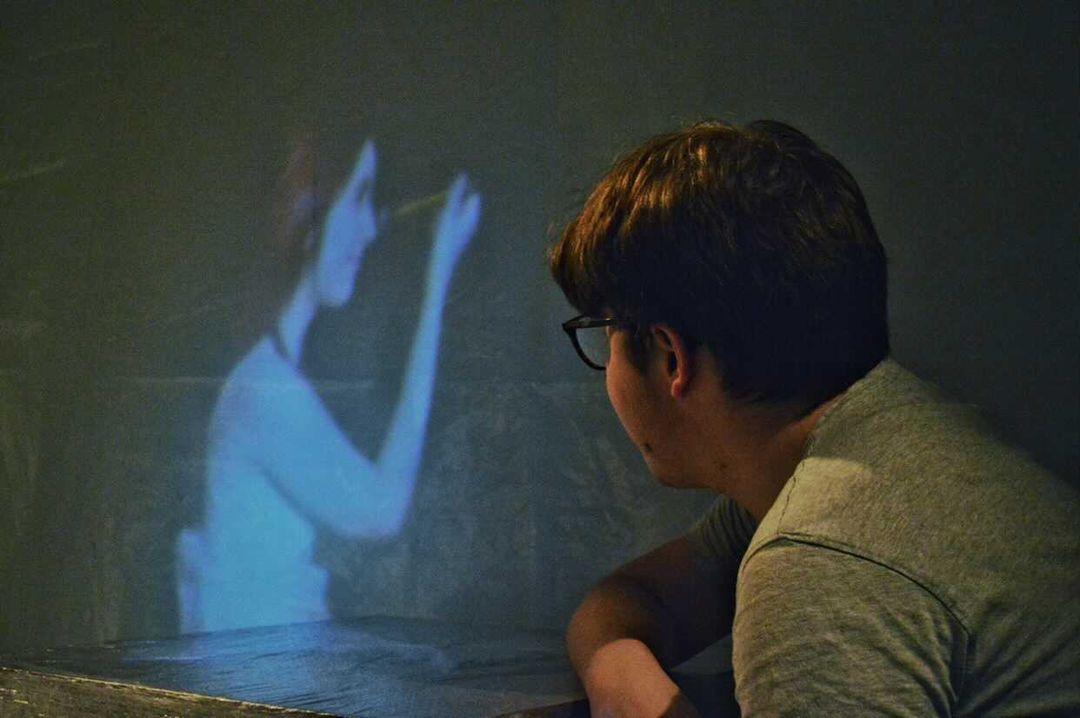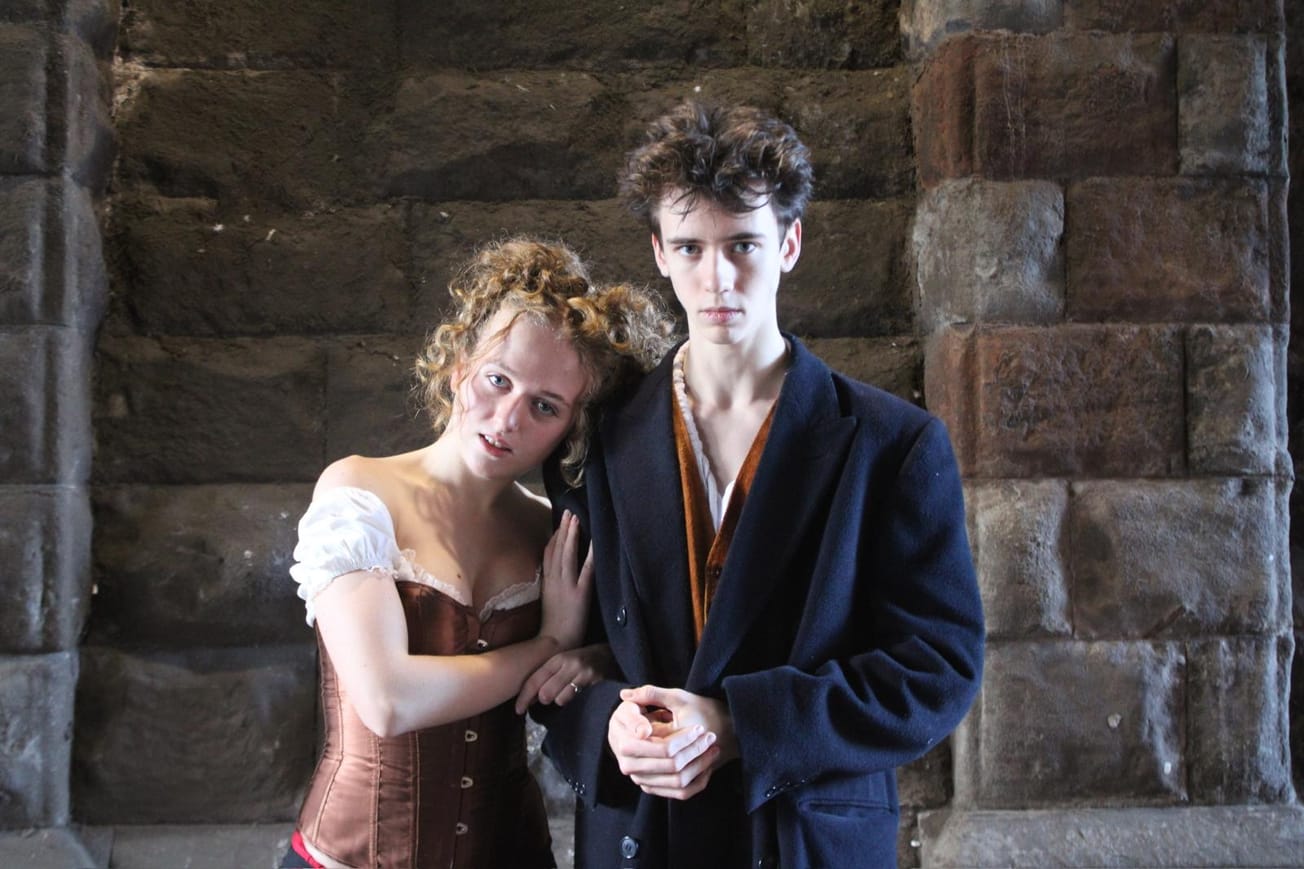By Milan Perera, Arts Critic Columnist
Working Mind Studios is the collaboration of two University of Bristol students; Bobby Joynes and Becky Coster. They are not exactly the ‘new kids on the block’, having collaborated with several university-based theatre and film productions for the past two years, including the most recent movie Cubicles. Nevertheless, Spring Term 2023 marks a significant milestone for Working Mind Studios, as they made their own theatre debut in the most emphatic fashion.
The stage play is tightly written; a solid adrenaline flowing 45-minute set involving hybrid mediums. The premise of the story is a university romance with all its intricacies and naïveté. Dear Emily is a heartfelt love letter to your significant other who meant so much for so long. But as the maxim goes, life happens and one is compelled to make an abrupt and existential evaluation of everything.
When we met on an earlier day while they were still doing their rehearsals, Bobby Joynes pointed out that many films and TV dramas on university romances fail to address the complexity and nuances of these relationships. What’s worse, these portrayals border on over romanticised cliches of roses and unicorns at the expense of truthfulness.
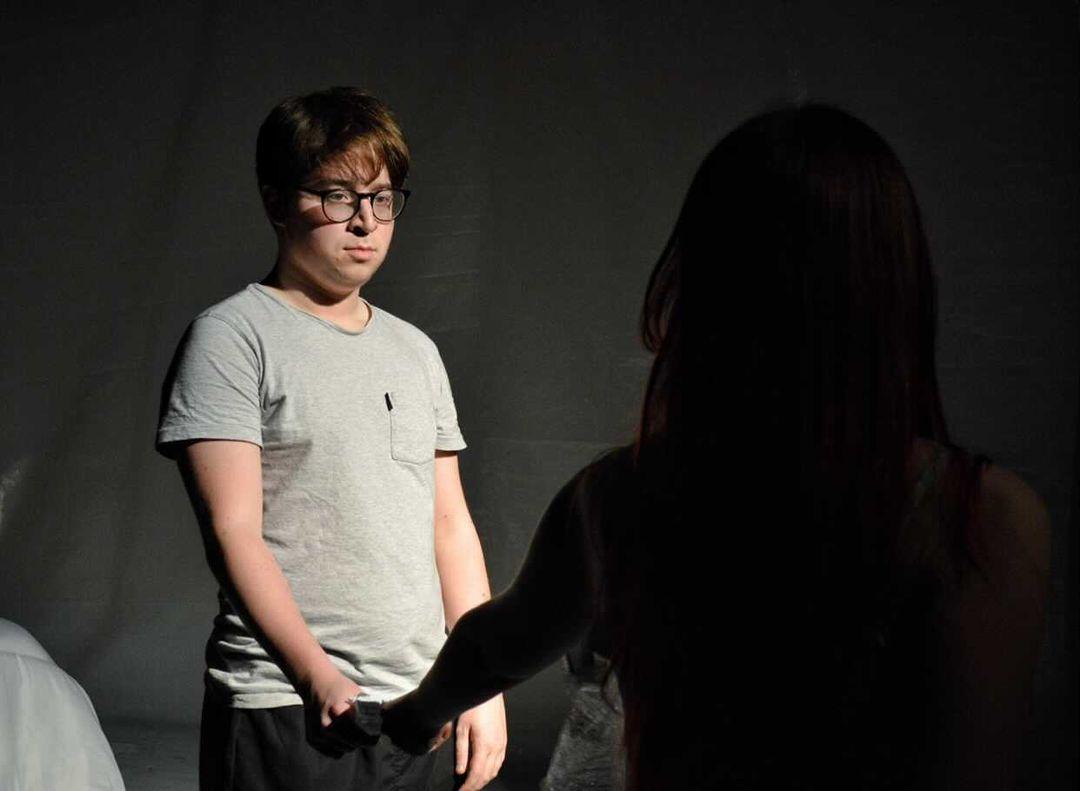
In the play we meet the two sweethearts, Emily, and Christopher, who were once inseparable and found pure joy in each other’s company. The love has gone thin and been replaced by a respectful but distant friendship. In the opening sequence of the play Emily bursts on to the scene heavily inebriated uttering profanities. There is Christopher, the loving boyfriend who tries to put her to bed. Then, we suddenly realise that this is a flashback, not something happening in real time, as Christopher starts writing a letter to ‘Dear Emily.’ As the set turned dark we see projections of Emily on the white screen with whom Christopher is talking to.
The non-linear progression of the play was both refreshing and innovative where there was a slick and seamless interplay of flashbacks and present time. According to Becky Coster, the co-star and playwright, Emily’s character is far more complex and nuanced than the first impressions. From the outset she seems a foul-mouthed drunk who is unfeeling towards Christopher and his friends. As the plot transpires, it is revealed that Christopher apotheosised a version of her which is merely a mental projection of Emily that only exists in his mind. He is unable to reconcile the real-life Emily from his own mental projection.
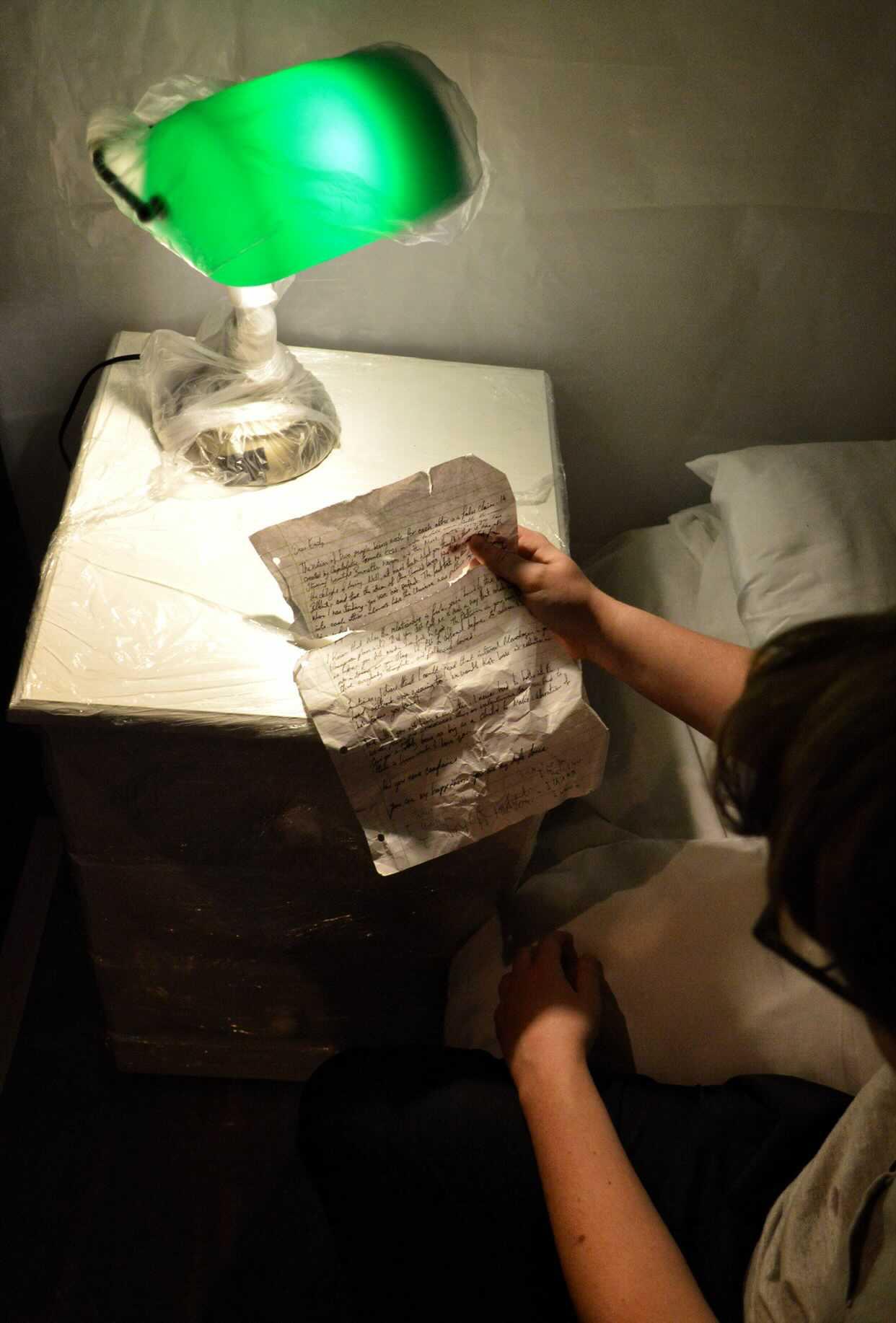
The central theme of Dear Emily is to highlight the fallacy of finding the perfect partner ‘destined’ for someone, especially during these formative years where life is unsullied by logic or pragmatism. More often than not we hear in ballads and rom-coms the phrase ‘made for one another’, but Dear Emily obliterates this notion.
According to Joynes, the inspiration for the project came from a series of photographs by the critically acclaimed Russian photographer, Karmen Verdi, which featured ordinary people interacting with projections. According to the scriptwriter, Becky Coster, she was given a photo and four days to write a script! Against the odds, she managed to write a neatly constructed and coherent script.
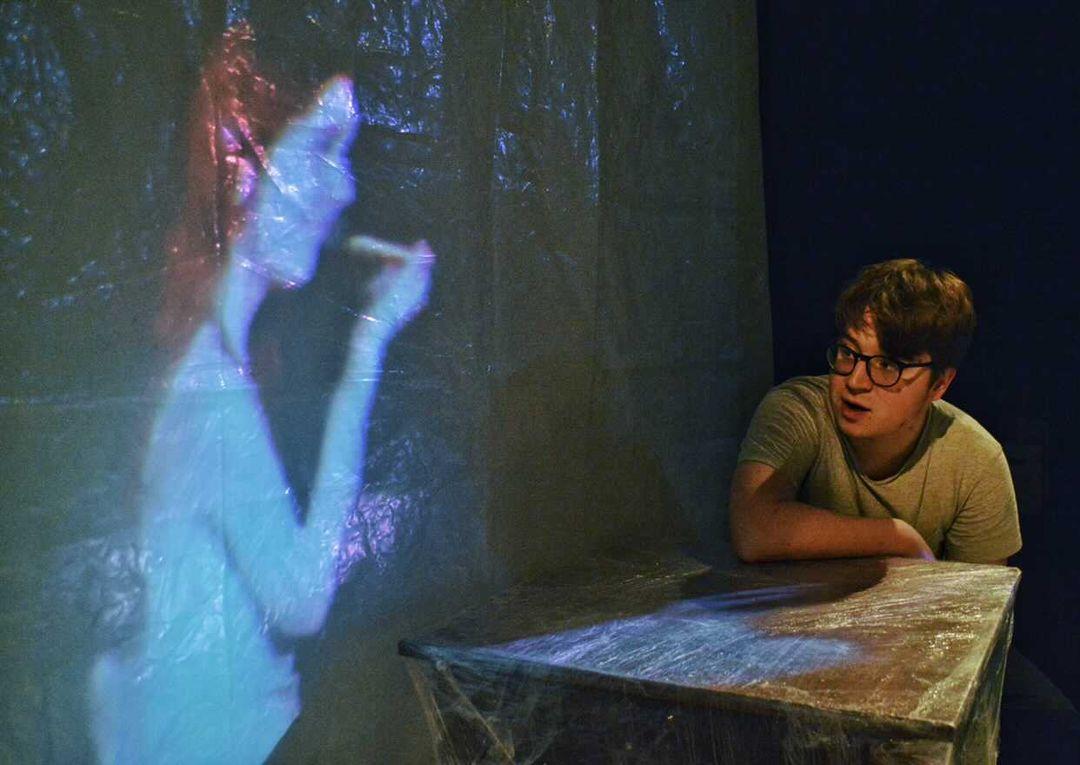
Rory Stroud, the star of the Daily Bread Theatre production of Flower Shop, plays the character of Christopher with ease and restraint. The stage chemistry between Stroud and Coster is unmistakable as they manage to find the perfect equilibrium in portraying a couple in an intimate relationship with all the quirks and emotional baggage that come with it. Coster is mercurial as Emily where she manages to deliver those drunken monologues with neat timing and close attention to each scene. Rory Stroud relishes another difficult acting assignment where his empathy and flawless delivery shines through. Despite the emotionally charged subject matter, both actors should be lauded for not overacting and turning it into a caricature.
Bobby Joynes was joined by Jesse Prince as the co-director in Dear Emily, where he seemed to have paid close attention to getting the chemistry and the movements of Coster and Stroud spot on, projecting the flaws and complexity of the characters on to the stage.
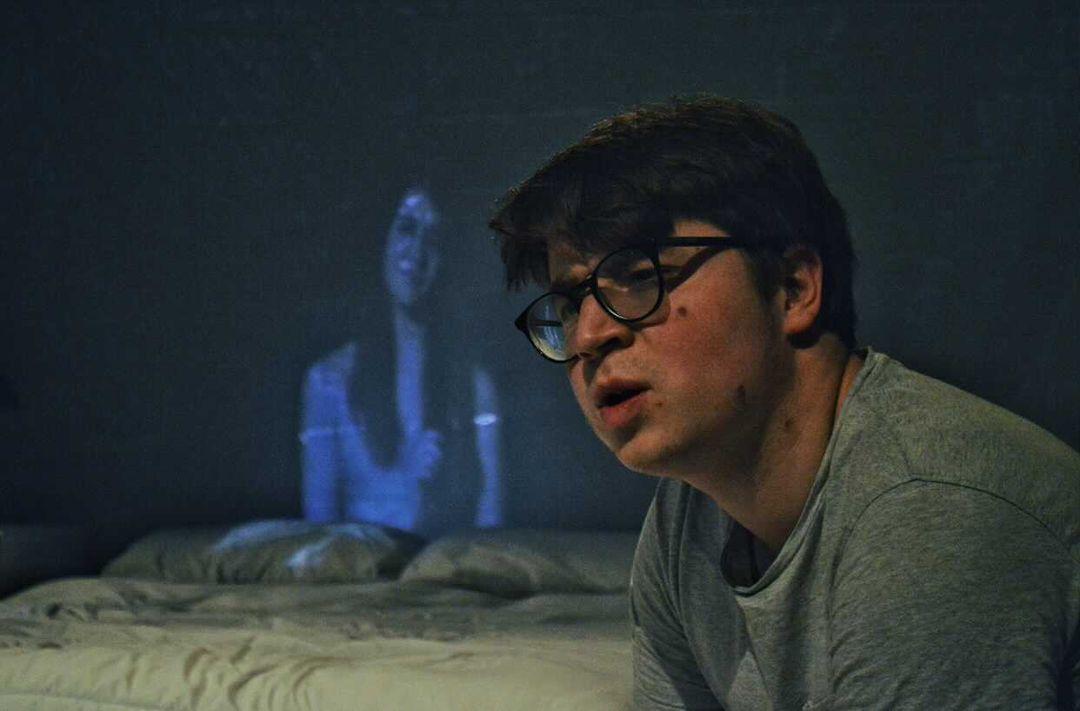
The set design was both detailed and innovative. Marked multi-media presence highlighted the reminiscent elements of the play. There was a reflective and sombre ambience throughout the play which was brilliantly executed by the creative cohort behind the sound board. The settings of the White Theatre added a further layer of intimacy and warmth to the set, going down a treat with the sold-out audience who responded with unbridled enthusiasm at the curtain call.
Featured image: Courtesy of Kieran Moses

